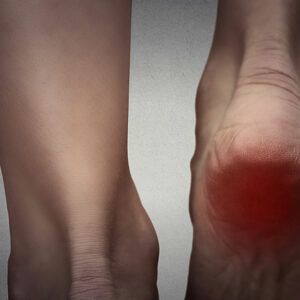All You Need to Know about Cholesterol

Cholesterol levels play a vital role in defining our overall health. It differs from person to person depending on their age, gender, and weight. Cholesterol levels change gradually, and we should check it frequently. Excessive cholesterol can adversely harm your health, and once you cross the age of twenty, you should check your cholesterol levels from time to time. Excessive cholesterol often results in plaque that blocks the arteries. Therefore, you should keep an eye on these levels. Recent studies have shown that nearly one million Americans die due to heart diseases, and one of the primary reasons for these diseases is excessive cholesterol.
Why should one maintain healthy cholesterol levels?
After getting a cholesterol test, one can check if their cholesterol levels are in the healthy range by consulting a cholesterol level chart, but there are some points that one needs to keep in mind while checking this chart. Generally, cholesterol is measured in three different categories that include total cholesterol, LDL or bad cholesterol, and HDL or good cholesterol. The primary challenge begins with the maintenance of these levels. Experts suggest keeping the total cholesterol and LDL levels low. High cholesterol can increase the risk of stroke and heart diseases among patients. Therefore, it is essential to maintain to maintain one’s cholesterol levels to reduce the risk of heart-related illnesses.
The connection between age and cholesterol levels
Cholesterol levels have a close relationship with an individual’s age. Excessive cholesterol can lead to several diseases. Moreover, unmanaged cholesterol is tough to treat. Hence, experts suggest maintaining healthy cholesterol levels from an early age.
Cholesterol generally affects men after older than 20 years, and usually, children don’t suffer from high cholesterol. You don’t have to check a child’s cholesterol levels more than twice before they turn 18. It is quite rare for children to suffer from high cholesterol, and you should only monitor their cholesterol levels after consulting a doctor. Men are more likely to develop higher levels of cholesterol as compared to women. Moreover, older people are more likely to have high cholesterol.
Understanding the cholesterol level charts
Nowadays, you can easily find a chart for cholesterol levels on the internet. It is important to note that the recommended levels change from person to person depending on various factors.
If your cholesterol level is less than 200 milligrams per deciliter (mg/dL), consider yourself healthy. Borderline cholesterol levels range between 200 and 239 mg/dL. If you see that your cholesterol level is higher than 240mg/dL, you should consult a physician immediately because you probably have high cholesterol.
Your LDL or bad cholesterol levels should range between 130 to 159 mg/dL. However, this reading will differ for people who have heart diseases. 130 to 159 mg/dL is borderline high cholesterol, and if you see a reading of 190 mg/dL or higher, it is very high, and you should act before it’s too late.
Experts suggest that every individual’s HDL levels should be higher than their LDL readings. A reading of 60 mg/dL or higher is considered to be okay, but if your reading is lower than that and ranges between 41 mg/dL to 59 mg/dL, it is borderline cholesterol. You should take steps to increase your HDL levels. If your HDL levels are 40mg/dL or lower, you face a high risk of heart diseases, and we recommend that you take action immediately.
Tips to maintain your cholesterol
People younger than 20 years don’t need to get their cholesterol levels frequently. However, adults should test their cholesterol levels from time to time. One also needs to consume a healthy diet and exercise regularly as it is quite helpful and will aid in maintaining balanced cholesterol levels.
It is also recommended to avoid processed foods as much as possible. Heredity also plays a role in the development of high cholesterol. If your family members suffer from this condition, there are high chances that you are at risk too.
If you have high cholesterol, you should exercise regularly. You can take medication as well but only do this after consulting a doctor. They will guide you about the right medication and dosage. Excessive cholesterol can lead to strokes, heart attack, and heart diseases. Therefore, you should take adequate precautions to reduce your cholesterol levels and maintain a healthy lifestyle.
A healthy diet also plays a vital role in maintaining one’s cholesterol levels. Experts suggest following a TLC diet to keep your cholesterol in check. Foods like vegetables, fruits, fish, whole grains, lean meats, and low-fat dairy products can help in lowering high cholesterol levels.
It is not very hard for adults to maintain healthy cholesterol levels. Nowadays, you can avail of different methods to treat this condition, and you can also control it with an effective diet and lifestyle. You can follow the tips mentioned above to reduce your cholesterol levels and consult a doctor for further assistance and medication.



